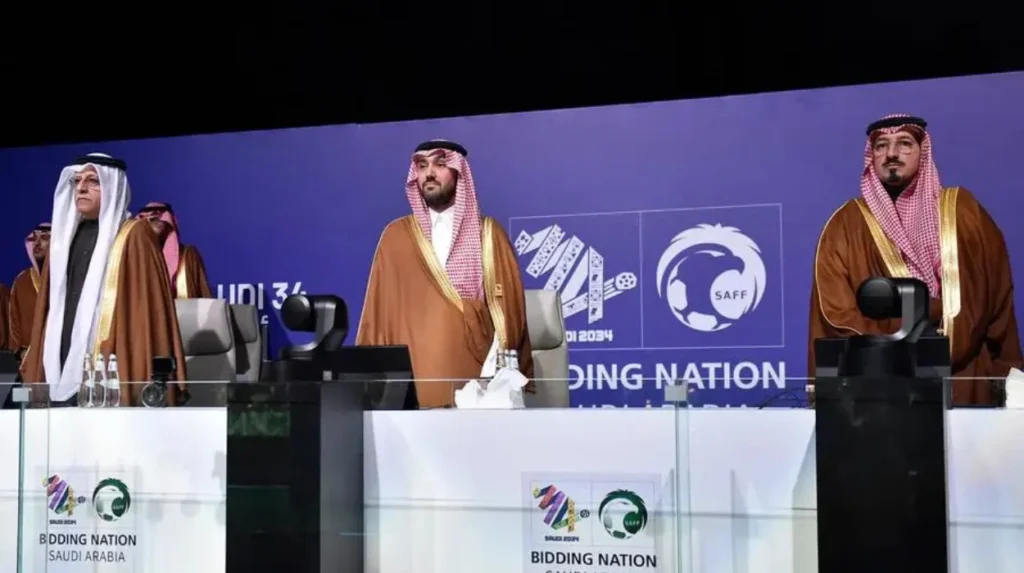The FIFA World Cup is more of an arena of the world than a footballing tournament; it thus brings together a diversity of human cultures, traditions, and differences. It invites the spirit of inclusion, unity, and inclusiveness. So, the case of awarding Saudi Arabia for hosting the FIFA World Cup for 2034 raises very serious points, especially concerning the repressive aspect of all host countries currently repressing all of the LGBTQ+ people. Despite the inclusion and anti-discrimination policies under FIFA, the Saudi stance towards LGBTQ+ rights is contrary to the said policies.
Criminalization of LGBTQ+ Identities and Behaviour
It poses a danger to LGBTQ+ players, fans, and reporters going to witness the tournament: they risk a felony trial simply for being who they are or engaging in what they do freely almost everywhere on the planet. The simple presence of LGBT-friendy supporters raises their risk of detention, threats of violence, or worse. There are regular arrests over LGBTQ+ identities. In 2023, for example, a young man was arrested for his homosexual activities on social media
No Jurisprudential Protection for LGBT Persons
The host country, Saudi Arabia, doesn’t have regulations that may shelter people against discrimination based on sexual orientation and gender identity. Its very regulation itself includes laws regarding the Human Rights Policy adopted in 2017 which acknowledges the protection of people against discrimination.
By giving the World Cup to Saudi Arabia, FIFA goes against that principle and indeed calls into question the actual motive for its statement on human rights. In 2020, a Yemeni blogger campaigning for the rights of the LGBTQ+ was jailed for ten months over charges of public indecency
State-Sanctioned Censorship and Suppression
In Saudi Arabia, LGBTQ+ rights and LGBTQ+ visibility cannot be brought into public discussion. The government of Saudi Arabia has even banned LGBTQ+ content from media and Pride events and punished the activists promoting LGBTQ+ rights. For example, during the 2022 FIFA World Cup in Qatar, some European teams tried to sport “One Love” armbands to symbolize support for LGBTQ+ rights.
However, under pressure from local authorities, FIFA banned the campaign. In Saudi Arabia, which has tighter anti-LGBTQ+ laws than Qatar, there is an excellent chance that Saudi Arabia will completely ban the representation, flag, or protesting of LGBTQ+ rights, and offenders may face severe penalties.
In 2019, the Saudi government implemented a Public Decency Law that was to govern the public behaviors of its citizens. The Public Decency Law prohibited public displays of affection and other immoral acts by the country’s standards; some of such acts might include LGBTQ identity expressions.
Hostile Environment for LGBTQ+ Fans and Players
Another significant issue is that Saudi Arabia hosting the World Cup means that the lives of LGBTQ+ fans, players, and officials may be at risk. The environment can be treacherous where open HIV/AIDS and sexuality-identified visitors may be under surveillance, discriminated against, or worse.
Football has been more inclusive lately, as shown by the case of Josh Cavallo, who recently revealed that he is gay, fighting for LGBTQ+ rights in football. He said himself that he would be “scared” to play in a country with anti-LGBTQ+ laws. If Saudi Arabia hosts the tournament, it will force LGBTQ+ athletes into an impossible situation: either suppress their identity or risk severe consequences.
Hypocrisy and reputation damage for FIFA
FIFA has long claimed to support human rights and LGBTQ+ inclusion in football. Its regulations prohibit discrimination based on sexual orientation. Awarding Saudi Arabia the World Cup sends a contradictory message and undermines FIFA’s credibility.
With controversy surrounding the Russia 2018 World Cup, and now similarly for the World Cup in 2022 scheduled to take place in another country known for severely restricted LGBTQ+ rights might have finally stood on principle to choose a host that was far more inclusive of human rights, but it gave Saudi Arabia 2034, indicating that business and political expediency wins over human rights.
Boycotts and Backlash from Teams and Sponsors
International and national sports and political leaders, and people worldwide, have been criticizing Saudi Arabia based on its human rights record as an unsuitable host nation. If it escalates, there will be boisterous campaigns calling for boycotts by the national teams, sponsors, and fans.
This makes it hard to justify for big sponsors like Adidas, Coca-Cola, and Visa, who in the past have supported rights for LGBTQ+ identities, the association with a World Cup hosted by a country that criminalizes such identities. A sharp reaction from these corporate sponsors might hurt FIFA financially and make it reconsider its stand.
In the second place, if the national teams boycott, then that can vitiate the quality of competition and make a proper protest against the violation of human rights. There are precedents in history like the boycotts in the Olympics in 1980 and 1984 when countries withdrew in protest for political and moral reasons.
Conclusion
Saudi Arabia suppresses LGBTQ+ rights very rigorously, thus making it the least suitable for hosting the 2034 FIFA World Cup. The country has criminalized same-sex relationships, offers no legal protections for LGBTQ+ persons, censors, and remains hostile to those who are different, directly opposed to FIFA’s commitments to inclusivity and human rights.
The World Cups should be hosted by countries that respect humans according to human rights and not discriminate against them in their sexual orientation or gender identity. Football is for all; thus, FIFA should not act like no oppression of the LGBTQ+ people exists in Saudi Arabia.

